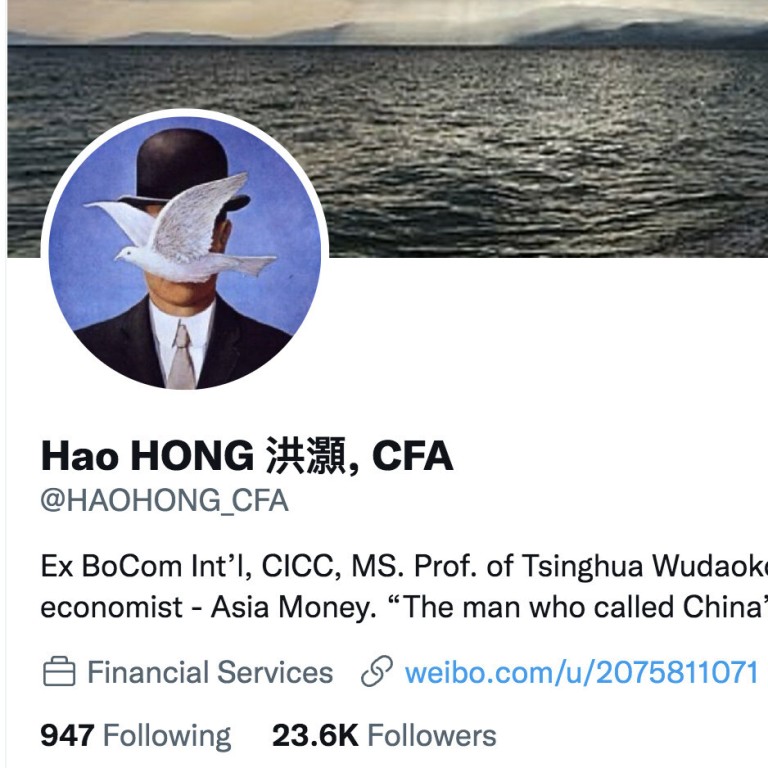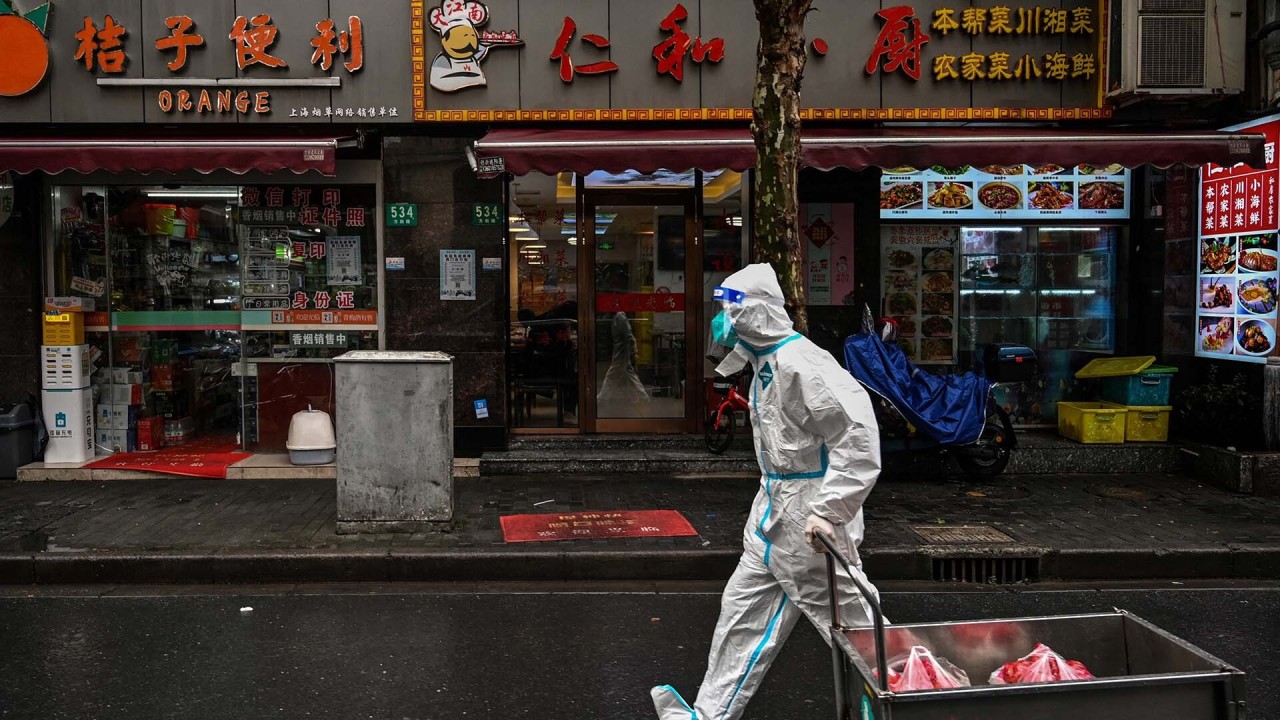
Chinese economists censored, removed from social media after critical takes on zero-Covid policy
- Online influencers with massive followings run afoul of Beijing’s censors, and some suspect they are being ‘cancelled’ for questioning nation’s approach to the coronavirus
- Investors on Weibo express confusion over the censorship, worried that it will become increasingly difficult to find credible investment suggestions
More outspoken economists and prominent investors are being silenced on social media in China as Beijing tightens its grip on online speech amid mounting economic pressure and growing controversies surrounding its zero-Covid policy.
The public accounts of Hong Hao, who was head of research at Bank of Communications (Bocom) International Holdings – a subsidiary of the state-owned bank – were removed from both WeChat and the Twitter-like Weibo service on Saturday.
Hong had more than 3 million followers on Weibo. It was unclear which red line the economist had crossed.
Beyond the reach of China’s “Great Firewall”, Hong had made several posts on his Twitter account about the economic fallout resulting from Shanghai’s lockdown, including one on March 31 saying “Shanghai: zero movement, zero GDP”.
Hong did not respond to the Post’s calls and a message seeking comment.
On Tuesday, Bocom International told the Post that Hong “has resigned due to personal reasons”, without providing further details. Hong’s name had been listed on the company’s daily market briefing report on Friday as head of research, but it was removed on Tuesday’s report.
And his Twitter profile, which remains active, now identifies Hong as “Ex BoCom Int’l”.
China urged to be ‘more precise, scientific’ with virus policy to aid economy
Meanwhile, Weibo also recently suspended the accounts of a few other economists and market analysts, including Fu Peng, chief economist at Northeast Securities; Dan Bin, chairman of Shenzhen Oriental Harbor Investment; and Wu Yuefeng, partner and fund manager with Beijing-based Funding Capital. All of their suspensions were said to be for “violating related laws and regulations”.
Some investors on Weibo expressed confusion over the censorship, saying it would be increasingly difficult for them to find credible investment suggestions.
Amid swelling discontent over China’s strict “dynamic zero-Covid” approach that has resulted in mounting economic distress, Beijing has been ramping up efforts to purge content it deems “harmful”, by taking new measures to censor internet users.
And Dai Yiyi, a management professor at Xiamen University, was temporarily silenced on Toutiao, a news aggregator run by ByteDance, on Sunday for “violating related regulations” after making comments that appeared to be critical of China’s zero-Covid policy.
His post in question referenced Berkshire Hathaway’s elderly chairman and CEO, Warren Buffett, 91, and its vice-chairman, Charlie Munger, 98, whom Dai said live in one of the “Western countries where Covid is rampant” – borrowing an oft-used line from Chinese state media.
“They did not wear masks and talked for six hours when tens of thousands of people gathered. Are they stupid? Or do they not want their lives? If they are stupid, how did they become so rich? If they want to die, how can they live so long?” Dai said.
He added that such questions “bother me deeply”.
On Thursday, the Securities Association of China (SAC), which functions under the China Securities Regulatory Commission and the Ministry of Civil Affairs, issued a notice to securities firms about regulating online speech by analysts.
“As public figures, securities analysts’ words and deeds are widely regarded by society and the media,” the SAC said, adding that “inappropriate” comments and actions could harm both their institutions’ reputations and that of the entire securities industry, and that analysts’ assessments must be better managed.
“All companies should strictly follow relevant regulations to do a good job in [terms of] quality control and compliance reviews of research reports to be released.”


